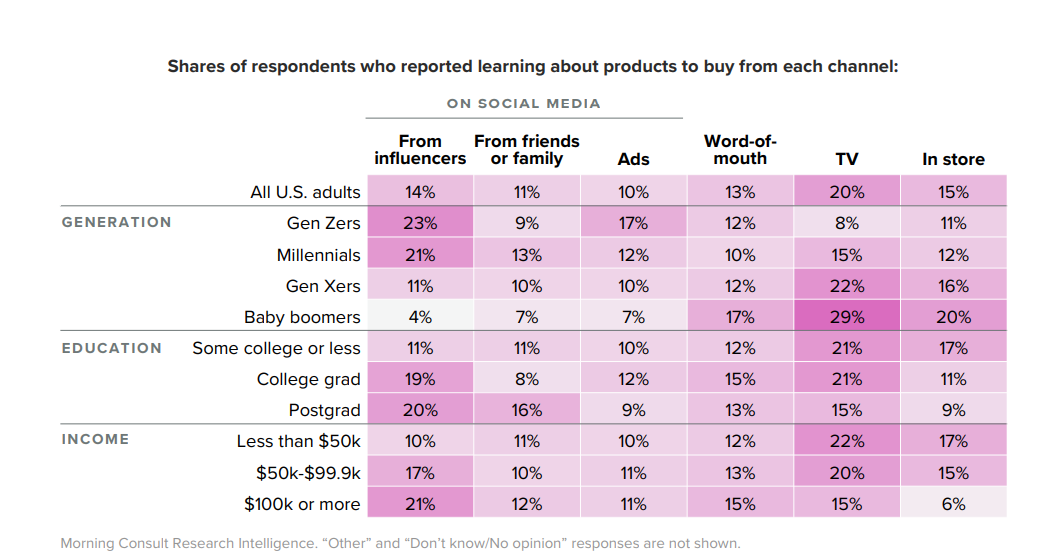How much trust should brands place in influencers?

Analysis
Earlier this month, the European Commission unveiled a study that found four out of five social media influencers fail to disclose whether commercial content they have produced was in fact an advertisement. Such lack of disclosure is in breach of EU consumer law.
At the heart of the issue is whether influencers can be trusted by advertisers and consumers alike to be transparent and act in line with advertising standards.
In the UK, the Advertising Standards Authority (ASA) regularly investigates reports of influencers in breach of the UK Code of Non-broadcast Advertising and Direct & Promotional Marketing. Currently, five influencers are listed on the ASA’s “non-compliance” list.
Speaking to The Media Leader, Scott Guthrie, director-general of the Influencer Marketing Trade Body, said that the more open and honest influencers are with their sponsored content, the more consumers trust them and the more effective the advertising.
“Hidden advertising is bad because it’s the wrong thing to do and the regulators will tell you off, but also because it’s bad for delivering trust and effectiveness,” he explained.
Building trust
According to a recent survey conducted by IPG Mediabrands’ investment arm Magna, in conjunction with social media company Snap, there is room for creators to improve trust with their audience.
The majority of respondents across the US, the UK, France, Australia and Saudi Arabia said they think content created by influencers is “somewhat” trustworthy, compared with 16% who said it is not trustworthy and 28% who said it is.
Trust in social media more generally, while improving, is still low compared with more traditional media. According to the 2024 Edelman Trust Barometer Global Report, 44% said they trust social media for general news and information (up four percentage points from 2023), compared with 51% who trust owned media, 62% who trust traditional media and 68% who trust search engines.
Sophie Crowther, talent partnerships director at influencer marketing agency Billion Dollar Boy, called ad disclosure “crucial” in building trust with consumers. While sponsored content “needs to feel as organic as possible”, flouting industry regulation is bad practice.
“Audiences don’t like to be deceived and the creator and brand risk being on the wrong end of a consumer backlash,” Crowther told The Media Leader. “Being honest and trustworthy isn’t just exclusive to the brand deals creators do but also needs to come through in all of their organic content. Ultimately, followers buy into them as a person, as their own brand. And this is earned and made over time.”
A ‘more authentic interaction’
Influencer marketing has become increasingly important for brands seeking to reach especially younger audiences. According to a Morning Consult report in September 2023, 23% of Gen Z and 21% of millennials said they learn about products via influencers on social media.

That is driving an influx of adspend to the influencer market — which, Statista data suggests, is set to grow to $24bn in 2024.
Morning Consult also found that trust in influencers has grown over time among younger cohorts. Whereas 51% of Gen Z and millennials said they trust influencers in 2019, by 2023 this had increased to 61%.
“The reason influencers can build such large followings is that they’re seen as a more authentic interaction on social media,” said Paul Greenwood, global head of research and insight at We Are Social. “Part of what makes an influencer authentic is an inbuilt trustworthiness compared to a faceless corporate entity; they’re human.”
Transactional nature
Greenwood believes it’s healthy for consumers to question their trust in influencers, and any type of media more generally, and it is easy to underestimate young social media users’ capacity for detecting fakery.
“These users know influencers need to make money and they’re comfortable with that transactional nature,” he explained. “Some influencers are taking a radically transparent approach to selling on their channels — explicitly stating they’re having to promote certain products to earn a living — and it’s been branded the ‘sell-out economy’.”
Jago Sherman, head of strategy at WPP-owned agency Goat, added that influencers are commonly stereotyped as “an ex-reality star who’s built an audience overnight through fame rather than an interest or niche”.
And while those types of influencers may not always be trustworthy, he argued that such a perception of an influencer is too narrow. In reality, many are enthusiasts who have created content aligned with their interests and so have developed trust within their audience as experts in their field.
“It’s important to remember that an influencer’s value and currency lies solely in their audience,” Sherman told The Media Leader. “So, by doing something that seems untrustworthy or acting in a way that is detrimental to their audience, they are not only risking their following, but their livelihood.
“It’s why so many of the influencers we work with are incredibly protective over their own ‘brand’ and very selective over the brands they choose to partner with.”
Setting high standards
Crowther agrees that influencers must be “comfortable with saying no” and set high standards when working with brands to ensure collaborations are “truly authentic” and something that the creator “would be proud to have on their feed even after the contracted term is over”.
She added: “What’s also important is to ensure a creator’s content output has a healthy organic-to-sponsored post ratio. The balance should be weighted towards the former rather than the latter.
“The creator economy is mature enough now that consumers understand brand partnerships are an influencer’s main source of income. But if all they see on their feed is sponsored content, audiences get fatigued and will be less inclined to engage.”
Bauer Media Audio: ‘radio presenters are the original influencers’
For brands, Sherman said they should focus on identifying influencers who have already talked about their brand organically or are otherwise relevant to their product and then approach them with briefs that are “less transactional”. Doing so can increase trust both for the influencer and the brand, he added.
“Too many brands fear any sort of negative review, so they will enforce scripts and overly strict guidelines around what influencers can or cannot say,” he continued.
“In fact, it’s more beneficial to allow for influencers to give their honest opinion, even if some of it isn’t all glowing.”




